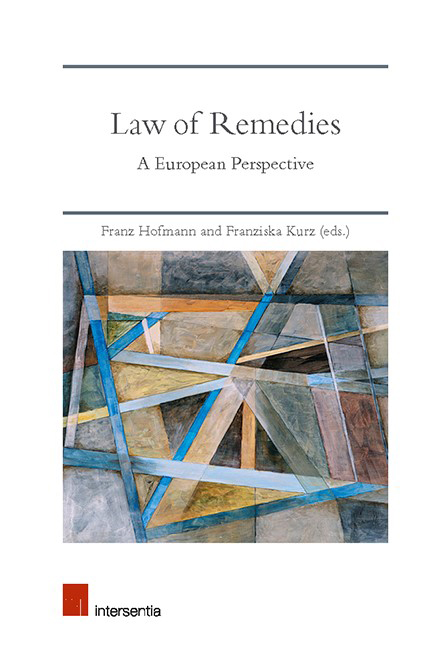Book contents
- Frontmatter
- Contents
- List of Cases
- List of Authors
- PART I THE ISSUE OF REMEDIES
- Introduction to the ‘Law of Remedies’
- Remedies in English Private Law – A ‘Stand-Alone’ Research Area?
- Remedies in Private Law from a German Perspective
- Rights and Remedies in Public Law
- Economics of Remedies: The Perspective of Corporate Law
- PART II MECHANISMS OF ENFORCEMENT
- PART III FUNCTIONS OF REMEDIES
- PART IV UNDERLYING PRINCIPLES
- PART V REMEDIES IN CONTRACT LAW AND INTELLECTUAL PROPERTY
- Index
- About the Editors
Remedies in English Private Law – A ‘Stand-Alone’ Research Area?
from PART I - THE ISSUE OF REMEDIES
Published online by Cambridge University Press: 09 November 2019
- Frontmatter
- Contents
- List of Cases
- List of Authors
- PART I THE ISSUE OF REMEDIES
- Introduction to the ‘Law of Remedies’
- Remedies in English Private Law – A ‘Stand-Alone’ Research Area?
- Remedies in Private Law from a German Perspective
- Rights and Remedies in Public Law
- Economics of Remedies: The Perspective of Corporate Law
- PART II MECHANISMS OF ENFORCEMENT
- PART III FUNCTIONS OF REMEDIES
- PART IV UNDERLYING PRINCIPLES
- PART V REMEDIES IN CONTRACT LAW AND INTELLECTUAL PROPERTY
- Index
- About the Editors
Summary
INTRODUCTION
Are remedies in English private law considered to constitute a ‘stand-alone’ research area? There is no doubt that lawyers often talk about ‘remedies’ as a distinct area; books are written on remedies, and university courses on remedies seem to be increasingly common. Indeed, I have taught a course on ‘Commercial Remedies’ at graduate level for the past five years. That partly reflects the fact that students are concerned to understand what courts do, and the potential relief available in the commercial context in which they hope to practise. But it does not necessarily mean that remedies should be considered to be a ‘stand-alone’ research area. There are obvious problems in divorcing remedies from substantive rights and causes of action. Conversely, there is clearly a strong link between rights and remedies.
This chapter begins by considering what it means for something to be a ‘stand-alone’ subject or research area. It will then briefly address the vexed question of how the term ‘remedy’ should be understood. This is the cause of substantial disagreement amongst scholars. The final terminological clarification concerns the scope of ‘private law’ and its coherence as a subject. It will then be possible to discuss the idea of remedies as a stand-alone subject. The dangers of isolating remedies will first be outlined, before analysing the pragmatic approach that the common law has taken to remedies. Finally, it will be suggested that regardless of whether remedies is viewed as a ‘stand-alone’ research area, there is still much to be gained from courses and books on remedies.
WHAT MAKES A LEGAL SUBJECT?
It is surprisingly difficult to state how a ‘legal subject’ is defined. In England and Wales there are currently seven foundational subjects that have to be studied at the academic stage in order to qualify as a solicitor or barrister: criminal law, contract law, tort law, constitutional and administrative law, land law, equity and trust law, and the law of the European Union. These core subjects are well-defined: they each consist of a set of over-arching principles which are distinct from those of other areas, and each contains a large body of law which shows structural coherence. They are rightly regarded as the ‘core’ of English law, since they are the building blocks for a number of other subjects which would be hard to understand without these foundational subjects.
- Type
- Chapter
- Information
- Law of RemediesA European Perspective, pp. 27 - 44Publisher: IntersentiaPrint publication year: 2019



